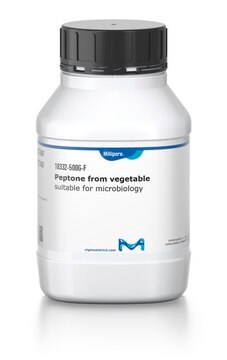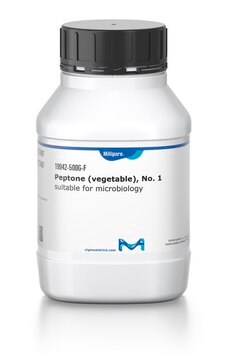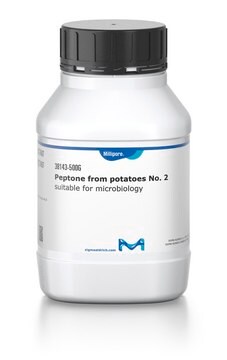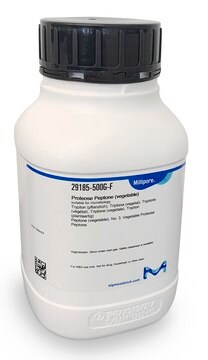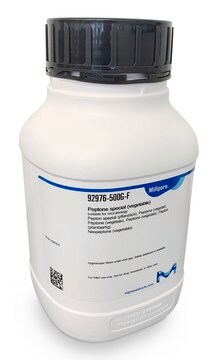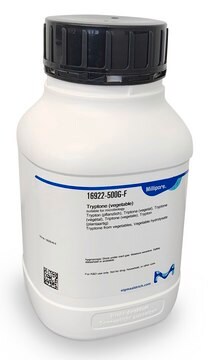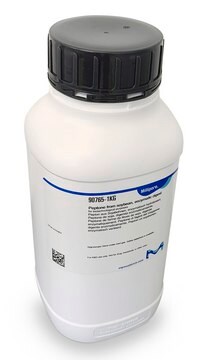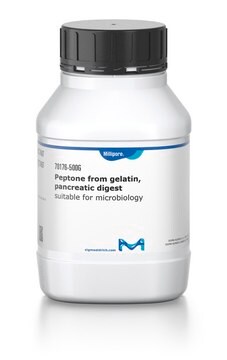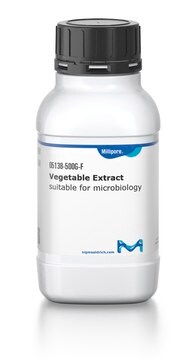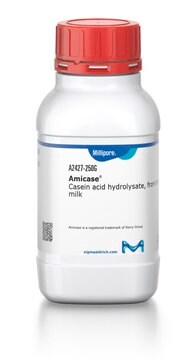51841
Peptone (vegetable) acid hydrolysate
suitable for microbiology
Synonym(s):
Peptone from vegetable, Casein acid hydrolysate replacement
Select a Size
Select a Size
About This Item
Recommended Products
biological source
plant
Quality Level
form
powder
shelf life
limited shelf life, expiry date on the label
composition
amino-nitrogen, ≥3%
total nitrogen (N), ≥6%
impurities
≤44% ash
loss
≤5% loss on drying
pH
5.5±0.5 (25 °C, 2% in H2O)
solubility
H2O: 2%, clear, yellow
application(s)
food and beverages
vitamins, nutraceuticals, and natural products
microbiology
Looking for similar products? Visit Product Comparison Guide
General description
Storage Class
11 - Combustible Solids
wgk_germany
WGK 3
flash_point_f
Not applicable
flash_point_c
Not applicable
ppe
Eyeshields, Gloves, type N95 (US)
Choose from one of the most recent versions:
Certificates of Analysis (COA)
Don't see the Right Version?
If you require a particular version, you can look up a specific certificate by the Lot or Batch number.
Already Own This Product?
Find documentation for the products that you have recently purchased in the Document Library.
Customers Also Viewed
Articles
Culture media provides a habitat with suitable nutrients, energy sources, and certain environmental conditions for the growth of microorganisms. The components of the culture media range from simple sugars to peptones, salts, antibiotics, and complex indicators.
Our team of scientists has experience in all areas of research including Life Science, Material Science, Chemical Synthesis, Chromatography, Analytical and many others.
Contact Technical Service
